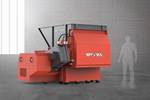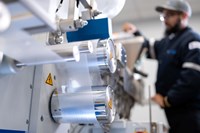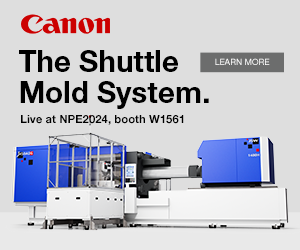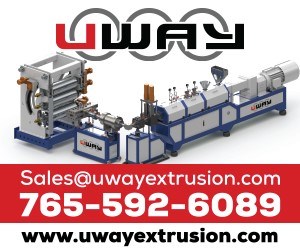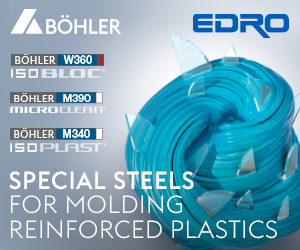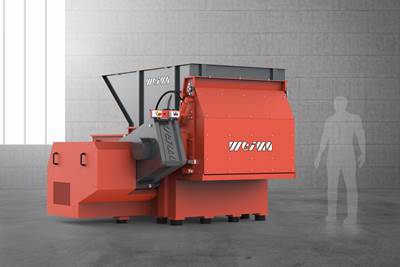Pricing Updates - August 2000
PP Price Hike Barely Makes DentPolypropylene prices generally have stayed the same despite recent attempts by suppliers to raise them 3-4¢/lb.
PP Price Hike Barely Makes Dent
Polypropylene prices generally have stayed the same despite recent attempts by suppliers to raise them 3-4¢/lb. PET suppliers, on the other hand, managed to raise prices another 5¢/lb. Meanwhile, Dow Corning has raised tabs of silicones, but no word yet from other suppliers.
Little movement seen in PP prices
Polypropylene producers’ attempts to increase resin tabs by 3-4 ¢/lb last month has met with a lot of resistance. In general, prices have remained stable, although there are reports of spotty implementation of the increase. “There are some processors paying about 1¢/lb more,” reports one supplier.
Contributing factors: Resin prices now appear to be following monomer tabs. Propylene contract prices were to have gone up another 3-4¢/lb, but were still unsettled at press time. Monomer tabs have risen 6¢/lb since January. PP tabs have gone up 7¢/lb—less than half of the total price hikes issued to date.
Some industry sources expect this latest price initiative to fall by the wayside. Despite good demand and high operating rates, new capacity will have an impact on the supply/demand balance. ExxonMobil has started up its 600-million-lb/yr unit, and Dow Plastics is scheduled to start up its new 550-million-lb/yr unit by year’s end.
PET moves up
Suppliers of PET bottle resin raised prices 5¢/lb in July. The increase follows hikes of 3-4¢/lb in April.
Contributing factors: The new increase is the result of a series of raw-material hikes that began late last year. Resin suppliers maintain that resin tabs have not caught up. PET prices went up in April by 3-4¢/lb, but suppliers were actually seeking a 7¢/lb price hike. Demand continues to grow at 11-12% domestically, and operating rates are in the low 90% range.
PVC passes its price peak
Resin producers admit they hit the top of the price cycle in June, but as of late July, they appear to be going to great lengths not to reduce market prices. Even though prices haven’t slipped per se, deals are being cut like “buy five rail cars, get one free” or “buy five cars at 43¢/lb, and we’ll sell you the next five at 38¢.”
Contributing factors: PVC was predicted to grow 2.5-3% in 2000. Sales in the first six months, however, grew some 6%, according to the American Plastics Council. Those sales may be attributed to inventory building and could account for the entire year’s growth. Export sales have also resurfaced in July, with some short- and long-term contracts, though export pricing is very low at around 30¢/lb.
Some resin producers are also cutting production in creative ways. A few producers on the Gulf with power co-generation facilities are selling power instead of using their co-generation plants to make VCM and PVC. Power fetches a premium in this summer’s heat wave in the South.
PS prices reflect May’s increase
Polystyrene processors with 60-day price protection and those with quarterly pricing (i.e., 90-day protection) began to pay the May 1 increase of 3¢ in July. The July 1 increase of 3¢, however, won’t kick in until August for customers with price protection.
Contributing factors: Suppliers and processors say sales are strong despite inventory build-ups in the two quarters as prices rose. Feedstock tabs have flattened but are still high.
Silicone prices rise
Dow Corning has increased silicone prices 8-10% across the board. It is the first price movement for silicones in three years. When contacted, GE Silicones would not say whether they would join in the increases, but sources there also admit they are experiencing pricing pressure from feedstock, transportation, and utility costs.
TiO2 tabs move up
Prices of titanium dioxide moved up last month—generally, 4¢/lb. (A few specialty grades, such as DuPont’s TiPure R100, moved up 9¢/lb.) The move was initiated by Millennium Inorganic Chemicals and supported by the other major producers—DuPont, Huntsman-Tioxide, and Kerr-McGee.
Contributing factors: Increasing raw-material costs, an overall tighter global market, and support for reinvestment are reasons cited by TiO2 producers.
Read Next
Recycling Partners Collaborate to Eliminate Production Scrap Waste at NPE2024
A collaboration between show organizer PLASTICS, recycler CPR and size reduction experts WEIMA and Conair will seek to recover and recycle 100% of the parts produced at the show.
Read MoreLead the Conversation, Change the Conversation
Coverage of single-use plastics can be both misleading and demoralizing. Here are 10 tips for changing the perception of the plastics industry at your company and in your community.
Read MoreMaking the Circular Economy a Reality
Driven by brand owner demands and new worldwide legislation, the entire supply chain is working toward the shift to circularity, with some evidence the circular economy has already begun.
Read More
